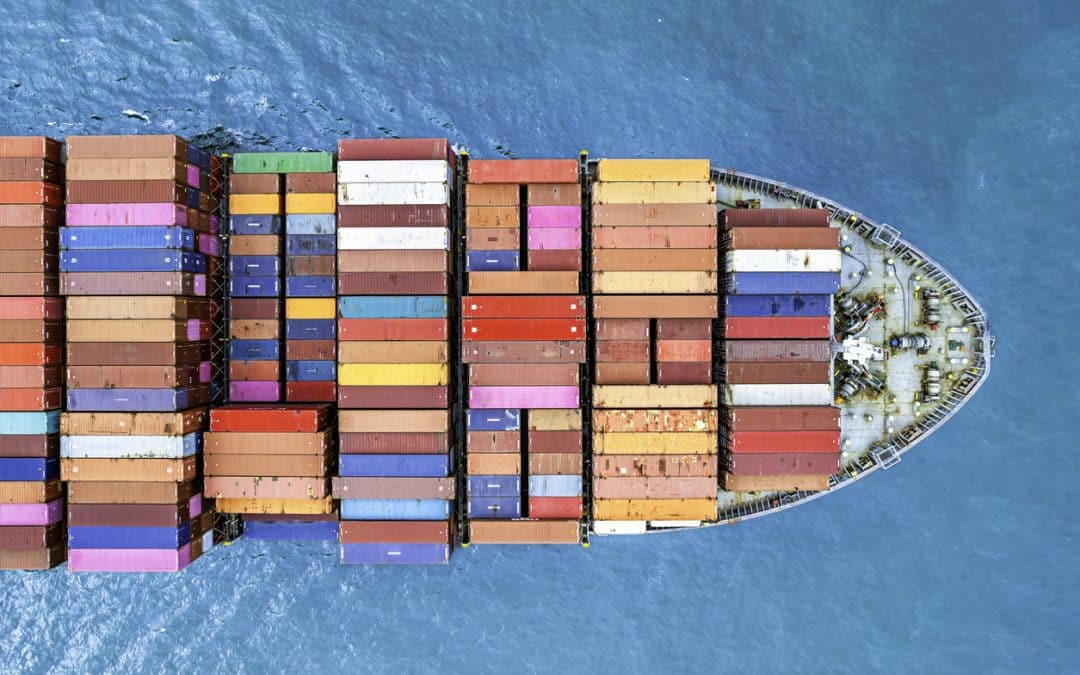From early in the pandemic, businesses all over the world have been overwhelmed by supply chain challenges in part due to a surprising surge in demand for Chinese goods. As a result, freight forwarders are taking notice of the opportunity to expand their business in China. In this article, we will cover the licensing and compliance requirements for freight forwarders in China and how to establish a freight forwarding company in China.
In the last two years, Chinese exports demonstrated remarkable resilience to the numerous setbacks brought on by the pandemic. Exports from China initially grew by a lower-than-expected rate of 3.6% YoY in 2020 followed by 29.9% YoY in 2021, far exceeding their pre-pandemic values.
Freight forwarders are seizing on the high demand for Chinese products and embracing the opportunity to help more businesses overcome their supply chain challenges in China.
In order to carry out freight forwarding activities in China, businesses need to pay special attention to the detail of the company registration process and ensure full compliance with Chinese laws and regulations from the start. The business scope is particularly important as some common freight forwarding business scope items will set the stage for the additional licenses and statutory filings required by the company.
We will outline the licensing and compliance requirement for freight forwarding companies in China.
Freight Forwarding Business Scope Items
When it comes to establishing a freight forwarding company in China, determining the business scope is the first step to ensuring a smooth setup process and crucial to maintaining compliance from the start of the business’ lifecycle. The business scope essentially determines what the company is legally permitted to do once it has been formally registered and thus should be precise and sufficiently detailed to cover the full range of services provided by the company.
Business scope items fall within two categories: General Business Scope Items and Licensed Business Scope Items. Common freight forwarding activities can be found in both categories of business scope items and may trigger additional licensing and permit requirements.
The below example demonstrates a business scope for a general freight forwarder.
General Business Scope items: Consulting and planning services; Safety consulting services; Domestic freight forwarding agency; Supply chain management services; Warehousing equipment leasing services; Low-temperature storage (excluding hazardous chemicals and other items requiring approval); General cargo warehousing services (excluding hazardous chemicals and other items requiring license and approval); Sales of intelligent storage equipment; Container leasing service and domestic container cargo transportation agency; International air cargo transportation agency; International freight forwarder; International shipping agency; Engaged in international container shipping, general cargo ship transportation and international ship management business; NVOCC business;
Licensed Business Scope Items: road freight transportation (network freight); Road cargo transportation (excluding dangerous goods); International road freight transportation; import and export of goods; Customs brokerage;
It’s important to keep in mind business scope items are frequently updated in China and the example above reflects a general freight forwarding business scope as of early 2022.
The ultimate decision on the allowed business scope is given by the Administration for Industry and Commerce and specific business scope items will vary depending on the location of the company and the unique circumstances.
Licensing and Permits for Freight Forwarders in China
In order to carry out normal freight forwarding activities in China, the company will require additional licenses, permits, and statutory filings according to Chinese laws and regulations once the company is officially registered. Below are some of the commonly required licenses, permits, and filings for freight forwarders in China.
Import & Export License – required by freight forwarders in China who provide customs brokerage services or import and export activities on behalf of their client. The freight forwarder must register with the customs authorities and complete the import and export registration procedures to engage in said activities.
International Freight Forwarding Filing (国际货运代理企业备案) – required in order to carry out international freight forwarding activities and act as an authorized agent to arrange shipping with domestic and international carriers. The filing should be done after the company has been successfully set up.
NVOCC registration (无船承运业务经营资格登记) – required in order to engage in NVOCC business activities and issue bills of landing in China. NVOCC registration can be completed after the company has been successfully registered.
Ground-Transportation Operating License (道路货运经营许可) – required to operate road transportation vehicles above 4,500kg. Successfully applying for the ground-transportation operating license requires the company to fulfill specific requirements and ensure safety measures set forth by the Ministry of Transportation in China
Additional Requirements
Freight forwarding is generally a capital-intensive business venture and requires the company to frequently interact with state authorities in China including customs authorities and tax authorities on behalf of their clients.
As such, Chinese regulatory authorities exercise a greater degree of oversight of new freight forwarders entering the market to ensure compliance with Chinese laws and regulations. Below are some notable requirements for setting up a freight forwarding company in China.
Registered Office Address
Freight forwarders in China are required to provide an office lease agreement as part of their company registration application. This address should be the same as their primary place of work and new companies are strongly advised not to rent a “virtual office” to use for the company registration.
Minimum Capital Requirements
Since 2014, minimum registered capital requirements were removed from the Company Law of the PRC. Minimum capital requirements have since been determined by the Administration for Industry and Commerce based on the business scope set forth by the company.
For freight forwarders in China, some of the common business scope items will require a minimum registered capital as follows:
International Maritime Cargo Transportation Agency minimum registered capital requirement of RMB 5,000,000.
International Air Cargo Transportation Agency minimum registered capital requirement of RMB 3,000,000.
International Land Cargo Transportation Agency minimum registered capital requirements of RMB 2,000,000.
Additionally, international freight forwarders in China must increase their registered capital by a minimum of RMB 500,000 per registered branch office engaged in international freight forwarding activities.
Negative List for Foreign Investment for Freight Forwarding Activities
Under the 2021 Special Administrative Measures for Foreign Investment Access (Negative List for Foreign Investment), foreign-controlled companies shall not operate or charter vessels within inland waterways.
As NVOCC business activities technically cover all forms of carrier transportation (land, air, maritime, inland waterway), foreign companies looking to engage in NVOCC business must sign a formal commitment to not engage in any of the prohibited activities outlined in the most recent Negative List for Foreign Investment and submit it for approval of the AIC.
How to Prepare for Market Entry
The resilience of the Chinese exports has created a unique opportunity for freight forwarders in China. However, businesses and individuals are still faced with pandemic restrictions and uncertainties affecting the way they do business.
A major challenge for all foreign investment in China at the moment is the current travel restrictions. Registering a company in China requires the Legal Representative of the company to complete the real-name verification process which can be challenging for designated legal representatives who are located overseas.
Read more about the Role of the Legal Representative in China.
However, prepared with the knowledge of Chinese regulatory and compliance requirements, freight forwarders looking to enter the market can make a more informed decision about their choice of vendor to assist them through the company setup process.







